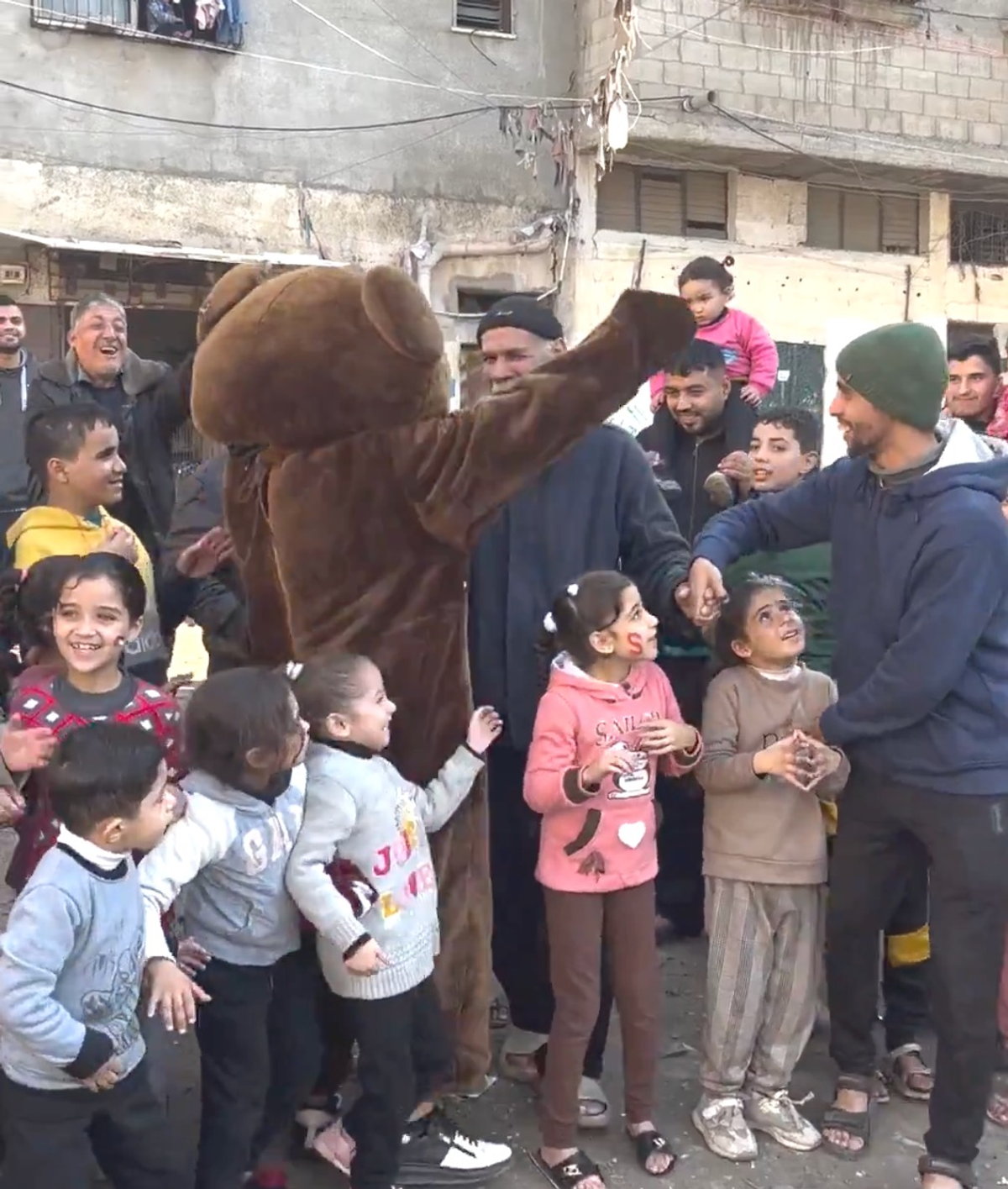January 14, 2025 · 5 min reading
Ceasefire or not, we need to support Palestinians materially
Under Israeli rule, genocide and death are not going anywhere. Even if Israel’s bombardment stopped right now, the destruction the state and its forces have carried out across all forms of life-sustaining infrastructure in Gaza is enough to sustain a serious toll of death and injury.

Lara Kilani
lara@goodshepherdcollective.org

Dear friends,
For the last few days, new rhetoric about the possibility of an “imminent ceasefire” in Gaza has been circulating. With Israel’s track record of dangling this possibility on a regular basis only to continue its genocidal carnage over the last fifteen months, as well as its ongoing deadly violence in the aftermath of the Lebanon-Israel ceasefire, it’s important not to spread false optimism. This doesn’t mean we need to sink into defeat or despair, but rather that we should assess the situation with clarity and remind ourselves of the only certain constant: ceasefire or no ceasefire, the Palestinians in Gaza and outside of it desperately need our material support and principled advocacy.
Before I go any further, let me be clear: we should always be hopeful. We should always strive toward what we need and deserve. We need a ceasefire in Gaza, but that is only the first step — and we must all be clear-headed about what will be required of us if there is a ceasefire after all.
Under Israeli rule, genocide and death are not going anywhere. Even if Israel’s bombardment stopped right now, the destruction the state and its forces have carried out across all forms of life-sustaining infrastructure in Gaza is enough to sustain a serious toll of death and injury. With more than 90% of Gaza’s population displaced and at least 66% of buildings in Gaza damaged according to a September 2024 study, two million people are facing the coldest months of winter without adequate access to shelter. With water and sewage infrastructure largely damaged and destroyed, unstable access to food, water, and medicine, and the systematic assaults on Gaza’s healthcare system and the people that keep it functioning, the conditions are ripe for death by disease and lack of medical care.
We have seen how Israel has responded to the ceasefire in Lebanon; Lebanese officials have reported no less than 470 violations by Israel of the ceasefire agreement since November 27, 2024, causing the death of at least 32 people and 39 injuries. With Israeli forces still invading Lebanon, reportedly abducting and detaining civilians, and bombing and invading villages in the south, it is not clear what will happen at the end of the 60-day truce. This example should give us a very sober perspective on a potential ceasefire in Gaza.
Meanwhile, in the rest of Palestine, genocidal violence continues without the possibility of a ceasefire in the near future. As Palestinian Authority (PA) forces continue to besiege the Jenin refugee camp, attempting to defang local armed resistance groups on behalf of Israel, Israeli settlers and their state forces continue their reign of terror, averaging more than six settler attacks a day over the last three months across East Jerusalem and the West Bank. Israeli forces have also ramped up their destruction and confiscation of property and disruption of Palestinian mobility in these areas alone. Since January 2024, there have been 743 road closures by Israeli forces, 9,722 arrests and abductions, 5,633 temporary checkpoints constructed, and 16,399 acts of invasion. 373 pieces of Palestinian property have been confiscated in that time alone, making it more difficult to sustain life on their lands. This only includes reported incidents, and only incidents in the West Bank and East Jerusalem — though we know things have gotten worse for Palestinian citizens of Israel, too.
Knowing all of this — and still desperately hoping to see an end to the inhuman violence we have watched Palestinians in Gaza be subjected to for more than fifteen months — we should consider what we can do to contribute to the struggle against zionist settler-colonialism. There are some real concrete ways folks can do that and make a meaningful difference in others’ lives:
- Adopt a campaign from Gaza Funds and help fundraise for families who need help rebuilding their lives. These campaigns will still be deeply relevant and important whether or not there is a ceasefire. The website shows only one campaign at a time.
- Sign up for a workshop or buy a book at Workshops4Gaza. This money also goes to families who need it on the ground in Gaza, and the workshops or books can make for great gifts.
- Support the Sameer Project, which has fundraisers for campaigns all over Gaza, through which they support displaced families and provide them with necessary resources as well as mental health relief.
- Organize in your own communities. Whether it is preparing a targeted boycott, asking your Attorney General to investigate a settler organization, or organizing fundraising campaigns, everyone can do something.
Finally, GSC is preparing for a few rounds of speaking tours throughout 2025, focusing on the United States, Europe, and South Africa. We need to raise a total of $25,000 in the next months to make this goal a reality, and you can help us get there by making either a one-time or monthly contribution.
One of our collective members will kick off a round of these speaking engagements in Chicago, between May 25 and May 27. If you would like to host her for a talk, please reach out to us so we can make that happen.
As always, we are so grateful for your support and solidarity. We couldn’t do this without you.
Until liberation and return,
Lara Kilani
Support
The Good Shepherd Collective rejects the model of large grants from liberal institutions because of the ways it can shape the work. Instead, we premise our work in the financial investments from individuals who believe in the future we're trying to build. Consider becoming a monthly donor.
Donate